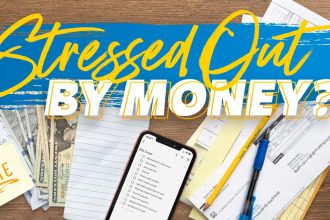THIS POST MAY CONTAIN AFFILIATE LINKS. PLEASE SEE MY DISCLOSURES. FOR MORE INFORMATION.
Living sustainably seems overwhelming and expensive, but it’s actually simple and can save you money, too. By making small, eco-friendly changes to your daily life, you can cut down on expenses while helping the planet, and the more changes you make, the more money you will save.
We’ve compiled this list of 24 ways sustainable living can save you money by researching, listening to experts, and using real-life examples. Each tip is about helping you save money while being eco-friendly. Ready to start saving and living sustainably? Let’s get started!
#1. Grow Your Food

One of my favorite sustainable activities is planting a garden and growing our own food.
By growing your own food, you’ll save money on groceries and reduce your carbon footprint by minimizing the need to transport produce from distant locations and the use of plastics to package it.
There is no excuse not to have a garden. Even those living in apartments can have a vertical garden, a couple of small pots on a balcony, or an indoor grow garden.
#2. Use a Clothesline


Did you know that using a clothesline instead of a dryer can save you anywhere from $100 to $500 per year, depending on how many loads of laundry you do?
Not only will you save money, but your clothes will also last longer, and you’ll be reducing your energy consumption.
At the very least, invest in a drying rack. Then, you can hang your clothing indoors and let them dry. This is what we do. We still use the dryer for towels, but the dryer rack is used for everything else.
#3. DIY Cleaning Supplies


Most cleaning supplies you can buy contain harmful chemicals and are very expensive.
Instead, try making your own cleaning supplies using natural ingredients like vinegar, baking soda, and essential oils to save money and reduce exposure to harmful chemicals.
#4. Switch to LED Bulbs


LED bulbs are more energy-efficient and last longer than traditional incandescent bulbs.
By switching to LED bulbs, you can save about $225 per year on your energy bill. And they are nowhere near as expensive as they used to be.
You can even get ones that dim and different color options, from warm white to bright white. You can even get specialty ones that allow you to pick any color.
#5. Eat Plant-Based Meals


Meat production is a major contributor to greenhouse gas emissions, so reducing meat consumption can positively impact the environment.
Plant-based proteins like beans, lentils, and tofu are much cheaper than meat, and eating plant-based meals has health benefits, too. This isn’t to say you can’t eat meat, either.
Pick one or two days a week not to eat meat. You might be surprised how much money you save.
#6. Shop Used


Shopping for second-hand items saves you money and reduces the demand for new products, which helps decrease waste production.
Yard sales, thrift stores, and online marketplaces are great places to find gently used items at a fraction of the cost.
#7. Go Efficient


Appliances and electronics can use a ton of energy, so opting for energy-efficient choices can help you save some cash in the long haul.
Look for products with an Energy Star label or choose ones with higher energy efficiency ratings to help reduce your utility bills and decrease your carbon footprint.
#8. Drive Less


One of the biggest expenses for many people is transportation, one of the biggest contributors to carbon emissions.
Instead of driving your car everywhere, consider walking, biking, carpooling, or public transit.
#9. Use More Cold Water


Most of the energy used for laundry goes toward heating the water, so use cold water instead to save money on your utility bills and reduce your environmental impact.
Plus, washing in cold water is gentler on clothes and can help them last longer, saving money.
#10. Use the Sun


Investing in solar panels for your home or using solar-powered devices such as chargers and outdoor lights might cost more upfront but can save you money in the long run.
You will not only be using a renewable energy source but also reduce your electricity bill and decrease your carbon footprint.
#11. Do Away with Disposable


You can save a lot of money by buying reusable alternatives to disposable items like paper towels, plastic water bottles, and single-use bags.
Spend a few dollars on a reusable water bottle and save. Buy a bunch of cheap washcloths and use them as rags instead of paper towels. When finished, throw them in the laundry.
This will save you money in the long run and help reduce landfill waste.
#12. Drive Electric

Switching to an electric vehicle can greatly reduce your transportation costs.
Not only will you save money on gas, but you’ll also reduce harmful emissions and contribute to a cleaner environment.
#13. Program Your HVAC


Do you continue cooling your home while you are at work so it will be comfortable when you get home?
Investing in a programmable thermostat that you can adjust to a more efficient temperature while you are away will save you money and use less energy.
At the same time, bump up the temperature you use in summer by a degree or two and down in the winter. You probably won’t notice the difference, but it will save some money.
#14. Skip Fast Food


Fast food places use a lot of disposable packaging in their meals and drinks, and they waste a lot of food.
Skipping the drive-thru and cooking at home saves you money on food costs and helps reduce unnecessary waste.
#15. Buy in Bulk


Buying in bulk not only saves you money on groceries but also reduces the amount of plastic packaging waste.
Consider purchasing bulk items like rice, grains, and beans to reduce your environmental impact.
#16. Save Green


Consider investing in a savings account or fund that supports environmentally friendly initiatives and companies.
Not only will you support sustainable practices, but you may also see a return on your investment.
#17. Learn to Love Leftovers


Instead of throwing away leftover food, try making other meals that you can add it to or freezing it for later use.
This not only helps reduce food waste but also saves you money when buying additional ingredients for new meals.
#18. Stop Impulse Buying


If you impulse buy, you will spend money on things you don’t need, leading to unnecessary waste.
So make a list of items you need and stick to the list when shopping.
For the things you think you want, write them down. Then revisit the list in a few days to see if you still want it. Chances are you won’t.
#19. Fix Leaks and Drips


A leaky faucet can be very annoying, but it can also waste a significant amount of water, which costs you money.
Be sure to fix any leaks or drips in your home to save water and reduce utility bills.
#20. Reuse Items


If you buy pickles or pasta sauce in a glass jar, don’t just toss it in the trash.
Instead, wash it out and use it as a storage container for leftovers or small items like office supplies instead of buying plastic storage containers.
#21. Fly Less


Air travel is a major contributor to carbon emissions and climate change, so why not try to reduce your air travel as much as possible?
Instead of flying for short trips, consider using alternative modes of transportation and choosing a direct flight rather than one with multiple stops, which can save on fuel consumption.
#22. Raise Livestock


If you have the space and resources, consider raising your own chickens for eggs or a milk cow for fresh dairy products.
This will reduce reliance on store-bought products and support sustainable and humane farming practices.
#23. Green Landscaping


There are many ways to use sustainable living practices when landscaping your property that will save you money.
For example, don’t use store-bought fertilizer or pest control chemicals; instead, create your compost and use natural pest control methods.
Consider planting native species that require less water and using a rain barrel to collect water for watering plants.
#24. Repair and Maintain


One of the most important aspects of sustainable living is repairing and maintaining items instead of constantly buying new ones.
Learn basic repair skills such as sewing, fixing small appliances, and even simple carpentry to extend the life of your possessions.
I have over 15 years experience in the financial services industry and 20 years investing in the stock market. I have both my undergrad and graduate degrees in Finance, and am FINRA Series 65 licensed and have a Certificate in Financial Planning.
Visit my About Me page to learn more about me and why I am your trusted personal finance expert.
Read the full article here














